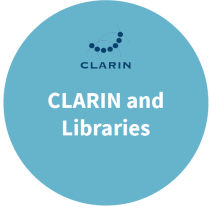
Official event website: https://www.clarin.eu/event/2023/clarin-and-libraries-2023-large-language-models-and-libraries
The workshop builds upon the first CLARIN and Libraries workshop held in the Hague in May 2022 (see here).
This year's workshop will investigate further areas of collaboration between CLARIN-related initiatives and libraries with a special emphasis on building (large) language models in and in cooperation with libraries. The workshop will bring together for the second time a group of people associated with both CLARIN (or other research infrastructures) and libraries. Whereas the first CLARIN and Libraries workshop was particularly concerned with digital content delivery for researchers, the main theme of the second workshop will be large language models and library collections, e.g. technical challenges in building such models and legal implications of model training and use.
The host, the National Library of Norway (NLN), has since 2005 digitised its entire text collections, amounting at present to a large corpus of 160 billion words for Norwegian and has built large language models for text (BERT, GPT-2, T5) and speech (wav2vec, Whisper) on these collections. There will be keynotes from the National Libraries of Norway and Germany on the technical aspects of building such models in a library setting, as well as a keynote on the legal aspects of building large language models from the Swedish National Library.
Participation in the workshop is by invitation. If you are interested in attending, please contact your national coordinator or clarin@clarin.eu. The venue (National Library of Norway, Henrik Ibsens gate 110, Oslo) is located very close to the train station Nationaltheatret. Descriptions for getting to the venue can be found here.
| 12:00 - 13:15 | Lunch (Cafeteria, National Library of Norway) |
| 13:15 - 13:30 | Welcome |
| 13:30 - 15:00 | Introduction to CLARIN and Libraries, wrap-up from last year’s workshop (15 mins)Tour de table: introduction and points for discussion (45 mins)Library collections as data (Sally Chambers) |
| 15:00 - 15:30 | Break |
| 15:30 - 17:00 | Large language models at the National Library of Norway (Javier De La Rosa)Large language models at the German National Library (Peter Leinen)Discussion: technical aspects (chair: Andreas Witt) |
| 17:00 - 17:30 | Sensitive Data in HPC – How secure can it be? Is secure data processing in shared computing environments a dream? (Martin Matthiesen) |
| 19:00 | Evening social dinner (Avalon, Munkedamsveien 31, Oslo) |
| 9:30 - 10:30 | Lightning Talks: Participants who have registered for a lightning talk (see separate invitation by e-mail) will have the possibility to introduce their own projects and resources. |
| 10:30 - 11:00 | Break |
| 11:00 - 12:00 | Legal aspects of large language models in libraries (Jerker Rydén)Discussion: legal aspects (chair: Andreas Witt) |
| 12:00 - 13:00 | Lunch (Cafeteria, National Library of Norway) |
Address
National Library of Norway
Henrik Ibsens gate 110
0255 Oslo
Norway
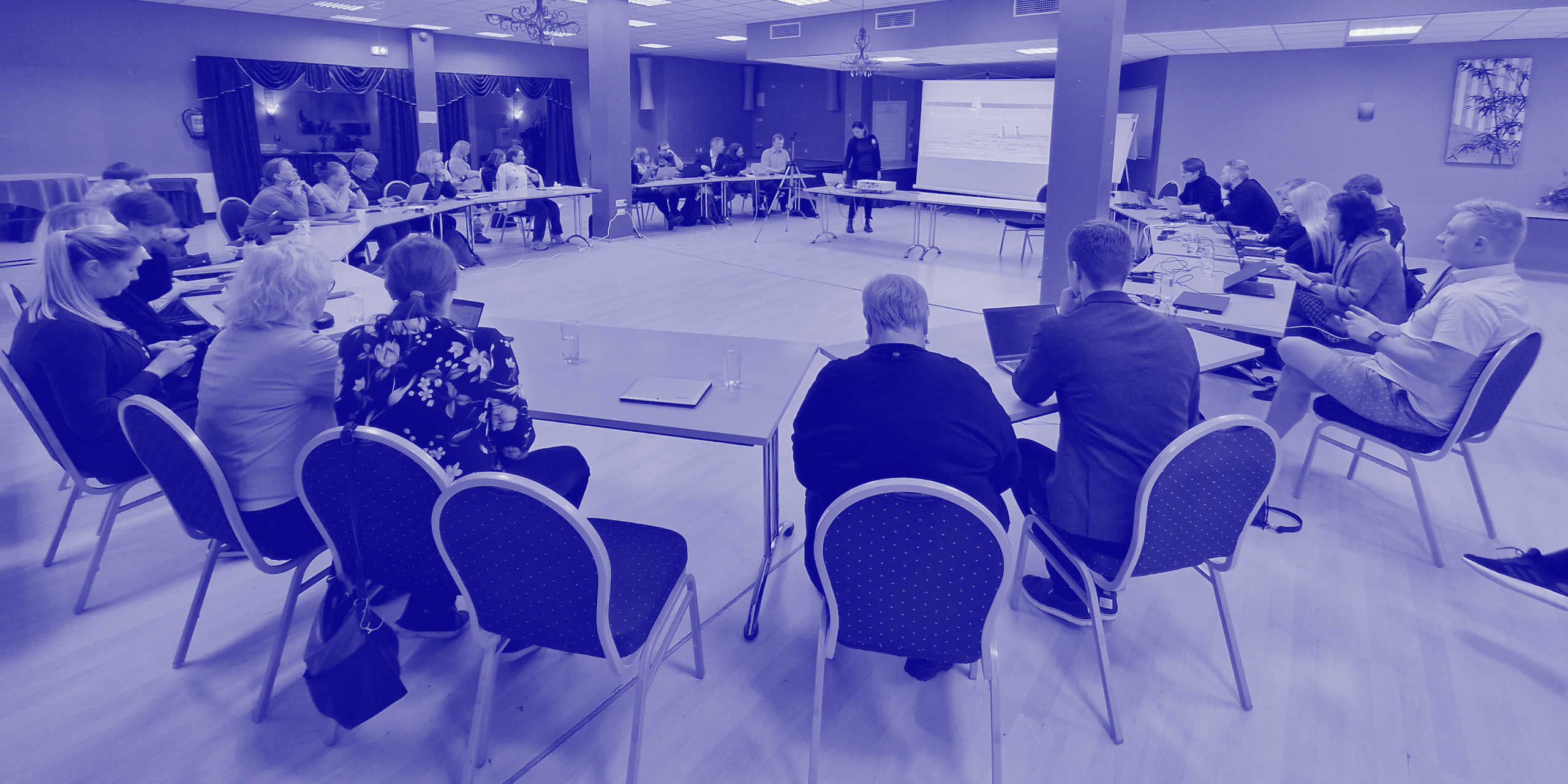
Ürituse ametlik veebileht: https://www.rara.ee/sundmused/digiarhiivinduse-seminar/
Seitsmes digiarhiivinduse seminar toimub Toosikannu puhkekeskuses 02.-03.11.2023.
11:00-12:00
Sissejuhatus ja tutvustusring. Asutuse digiarhiivindusega seotud uudised ja projektid.
Moderaator Lauri Leht, RA.
12:00-13:00
RaRa uus DIGAR, ehk teekond IIIF ja kasutajakogemuse parandamiseni – Greete Veesalu, RaRa.
Sotsiaalmeedia arhiveerimine Veebiarhiivi – Virgo Hallik, RaRa.
Lõuna
14:00-15:30
Õppetunnid keerukatest arendusprojektidest – RA, RaRa, KIRMUS jt.
Kohvipaus
15:45-17:15
Paralleelsessioonid:
Relatsiooniliste andmebaaside arhiveerimise praktiline kogemus. Workshop, Lauri Rätsep, RA.
Üks aasta Digilabori käivitamisest. Esitlus ja arutelu, Urmas Sinisalu, RaRa.
10:00 -11:30
Arhiveerimiseks kasutatavad arhiivivormingud Eesti mäluasutustes. Arhiivivormingute alane rahvusvaheline koostöö Rahvusarhiivis. Kaido Kivilaan, RA.
Palume kõigil osalevatel asutustel end eelnevalt kurssi viia oma majas kasutatavate vormingutega ning plokis aktiivselt kaasa rääkida.
Kohvipaus
11:45-12:30
Kokkuvõte ja koostöökohtade arutelu aastaks 2024.
Moderaator Eva-Maria Artus, RaRa.
Osavõtutasu on 90 eurot (sh KM), mis ei sisalda transporti.
Kohalejõudmise juhised leiab SIIT.
Vaata täpsemalt Toosikannu kohta SIIT.
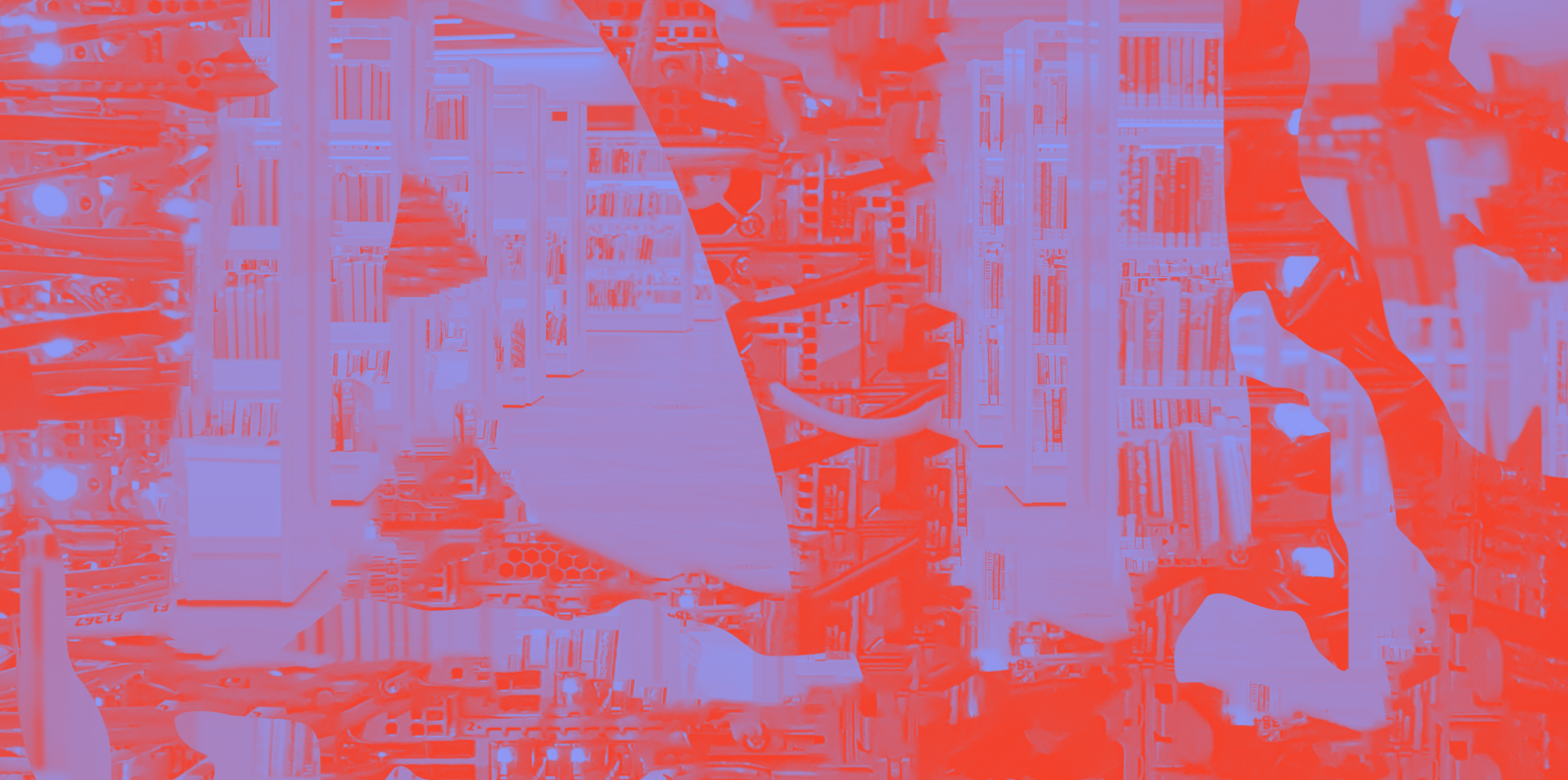
Ürituse ametlik veebileht: https://www.rara.ee/sundmused/sailitusalane-seminar-i-sahvrist-serverisse-digitaalne-kultuuriparand-tehisintellekti-ajastul/
Digitaalne kultuuripärand on mäluasutuste kogude lahutamatu osa. Selle säilitamine ja mugavalt kättesaadavaks tegemise eesmärk on võimaldada kasutada varem loodud ainest ühiskonna ja kultuuri edendamiseks. Üha aktuaalsemaks muutub suurte andmekogumite kasutamine ja taaskasutamine ning kasutajakogemuse tõstmine. Suurte sihtide elluviimiseks rakendatakse erinevaid tehnoloogiaid ja AI-lahendusi. Uute ideede, kogemuste ja kompetentside tõstmine on lähiaastatel asutuste ees seisvad proovikivid.
Kutsume sind kuulama ja kaasa mõtlema, et saaksid osa parimatest kodumaistest ja rahvusvahelistest praktikatest! Kutsu Facebookis ka kolleegid osalema! Päeva juhib Raivo Ruusalepp.
Korraldavad: Eesti Rahvusraamatukogu ja Rahvusarhiiv
Toetavad: Kultuuriministeerium ja Eesti Rahvusraamatukogu
9.30–10.00 Kogunemine ja registreerimine
10.00–10.10 Avasõnad – Raivo Ruusalepp (Ernst & Young Baltic, digisäilitamise konsultant)
10.10–10.30 Tulevikukindel andmemajanduse ökosüsteem – Ott Velsberg (Majandus- ja Kommunikatsiooniministeerium, riigi andmete valdkonna juht)
10.35–10.55 Digitaalise kultuuripärandi pikaajaline säilitamine ja toimepidevus ERRis – Jaanus Lillenberg (Eesti Rahvusringhääling, IKT direktor)
11.00–11.20 Eesti Kirjandusmuusemi infosüsteemide ja andmekogude strateegiline analüüs: võlud ja valud – Olga Ivaškevitš (Eesti Rahvaluule Arhiiv, Eesti Kirjandusmuuseum, vanem digitaalarhivaar)
11.25–11.40 Uue arhiivi infosüsteemi rakendumine Rahvusarhiivis – Lauri Leht (Rahvusarhiiv, digitaalarhiivi direktor)
11.45–12.00 Teel uue DIGARi poole – Eva-Maria Artus (Eesti Rahvusraamatukogu, rahvusteavikute säilituskeskuse juhataja)
12.05–12.25 Kultuuriline elujõulisus ja ebavõrdsus tehisintellekti ajastul – Krister Kruusmaa (Eesti Rahvusraamatukogu, andmeteadlane)
12.30–14.00 Lõuna
14.00–14.20 Segaduse ja innovatsiooni keerukuses navigeerimine: eetika, generatiivse tehisintellekti võimalused ja haip – professor Peter Bryant (Sydney Ülikooli ärikool, haridusvaldkonna kaasdekaan) (ENG)
14.25–14.45 Läti digitaalne raamatukogu: taludest ühise vastutuseni digitaalses ruumis – Karīna Bandere (Läti Rahvusraamatukogu, digitaalarengu osakonna direktor) (ENG)
14.50–15.10 Kõik juhtus kusagil, digitaalsete kaartide säilitamise väljakutsed digitaalse tuleviku jaoks – Gregor Završnik (Ettevõtte Geoarh asutaja ja tegevjuht) (ENG)
15.15–15.35 Hollandi Rahvusraamatukogu digitaalkogud suurte keelemudelite ajastul – Steven Claeyssens (Hollandi Rahvusraamatukogu, digitaalkogude kuraator) (ENG)
15.40–16.00 Soome Rahvusarhiivi digitaalarhiveerimise teenus – Vesa-Matti Ovaska (Soome Rahvusarhiiv, digiarhiveerimise üksuse vanemspetsialist) (ENG)
16.05–16.15 Lõppsõna
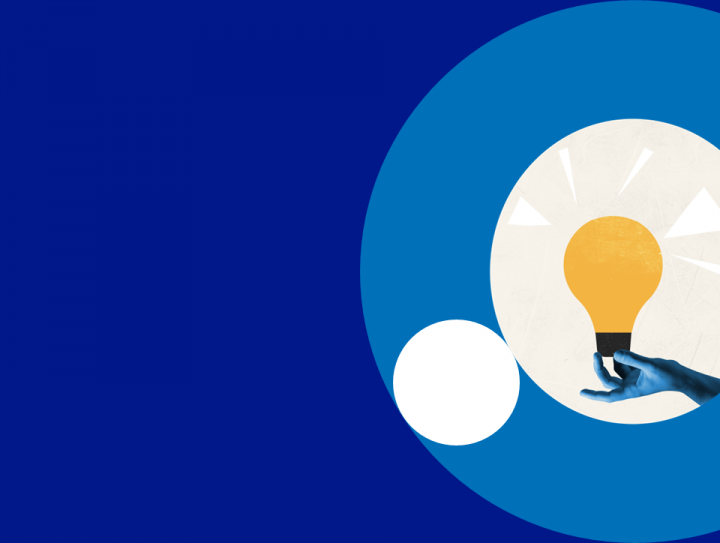
Official event website: https://data.europa.eu/en/news-events/news/are-you-student-or-academic-sign-workshop-how-use-open-data-your-research
Join our workshop tailored to students and academics to learn how to use open data from data.europa.eu for your research.
On Thursday 19 October from 10.00 to 12.00 CET, data.europa.eu will host its first workshop series on ‘How to use open data for your research’. This series, designed for students and academics is also open to anyone interested. The goal is to showcase the relevance and importance of open data for academic purposes. During this workshop, you will learn how to use open data from our portal for research and get examples from universities that have already embraced open data in their daily operations.
The workshop will start with an introduction by the Publications Office of the EU on open data and data.europa.eu. Following that, a hands-on presentation will be given through the portal, demonstrating how to efficiently search for specific datasets. Furthermore, three esteemed universities - KU Leuven, University of Amsterdam, and University of Naples L'Orientale - will present practical examples of how open data can be used to conduct Research.
These universities offer three distinct perspectives on using open data in research. The KU Leuven Research Repository provides access to open research data through their database, providing valuable resources to students. The University of Amsterdam offers a practical example of how linked open data can drive research and the UniOR NLP Research Group of the University of Naples L'Orientale will showcase a real-life example of exploiting open data for applications.
Following the informative university presentations, a short practical assignment will be given to help put the learnings into practice. To wrap up the practical assignment, you will have the opportunity to share your insights and ask your questions during the Q&A session.
Do you want to improve your digital skills and learn about the relevance of open data for academic purposes with real-life examples? Click here to register for the workshop.
For more news and events, follow us on Twitter, Facebook and LinkedIn, or subscribe to our newsletter.
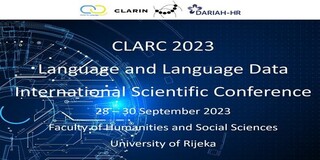
Official event website: https://cji.uniri.hr/en/hr/konferencija/clarc2023/
The Center for Language Research at the Faculty of Humanities and Social Sciences in Rijeka, Croatia is organizing the international scientific conference CLARC 2023 (cji.uniri.hr/clarc2023) entitled "Language and Language Data". You are invited to participate by presenting a scientific paper and/or organizing a panel on a relevant topic (extended deadline until July 31). We welcome high-quality presentations on empirical, theoretical, and methodological issues in science related to the theme of "Language and Language Data".
CLARC2023 will cover various topics in the fields of language technology and linguistics. Participants will have the opportunity to engage in panels and lectures that encompass areas such as computational linguistics and natural language processing, corpus linguistics, phonetics, phonology, morphology, syntax, sociolinguistics, pragmalinguistics, discourse analysis, language acquisition, psycholinguistics, neurolinguistics, language and cultural studies, language data from legal and economic perspectives, language and tourism, as well as medicine and public health.
The conference will feature inspiring keynote speakers, including Maja Miličević Petrović from the University of Bologna, Marko Tadić from the University of Zagreb, Tony Veale from University College Dublin (UCD), and Nikola Ljubešić from the Jožef Stefan Institute.
Additionally, various events will be organized, such as a panel section on transforming language and linguistics studies with the results of the UPSKILLS project (Upgrading the Skills of Linguistics and Language Students), a round table on career transitions from linguistics to data science, and a round table on linguistics and large language models. Participants will also have the opportunity to attend the co-occurring event RIKON 2023, the largest fantasy convention in Croatia with a rich tradition.
Please read the details about submissions, the deadline for abstracts and full papers, as well as information about registration fees on the official website of CLARC 2023: https://cji.uniri.hr/clarc2023
We look forward to your valuable presence at this conference, which brings together experts in the fields of language technology and linguistics.
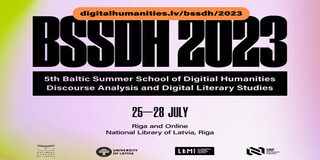
Official event website: http://www.digitalhumanities.lv/bssdh/2023
When: 25 July - 28 July 2023
Where: Riga, National Library of Latvia and Online
Language: English
Duration: 4 days
Credits: 3 ECTS
Fee: 30 EUR*
Welcome to the annual Baltic Summer School of Digital Humanities (BSSDH 2023)!
This year’s programme offers must-have introductory courses for digital humanists and digital social scientists who wish to come to grips with programming with Python, collecting web data, and network visualization. For the first time, an advanced Python class is also available. The course is co-taught by an international team of researchers and practitioners of digital humanities and digital social sciences coming from Latvia, Finland, Sweden, and Poland. As always, this will be a great opportunity to meet colleagues and mentors from other countries and explore different perspectives!
The programme includes workshops and lectures in:
PARTICIPANTS
The Baltic Summer School of Digital Humanities is aimed at students and researchers of humanities and social sciences, library, and archives professionals. There are no prerequisites for participation, as the course does not require any background in DH computing. The working language of the summer school is English. After successful completion of the summer course, students will be awarded 3 ECTS by the University of Latvia.
REGISTRATION FEE*
30 EUR includes: Full access to all lectures and workshops, onsite or online. Food and drinks during lunch and coffee breaks for onsite students. Access is free of charge for assistants of workshops and other volunteers. Contact dh@lnb.lv to apply!
REGISTRATION FORM
https://reg.lnb.lv
SUPPORTERS
State Research programme
Nr. VPP-IZM-DH-2020/1-0002
ORGANIZERS
BSSDH 2023 is organized by a joint effort of the National Library of Latvia, Institute of Literature, Folklore and Art (University of Latvia), Faculty of Social Sciences of the University of Latvia.
CONTACT US
Coordinator Anda Baklāne
anda.baklane@lnb.lv
dh@lnb.lv
+371 29 143 299
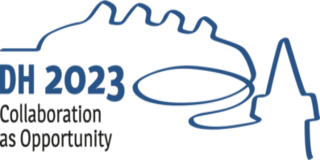
Official event website: https://dh2023.adho.org/

July 10-14 2023, Graz | Austria
We are looking forward to welcoming you to Graz, Austria from the 10th to 14th July 2023!
Registration for the conference is now open and possible at: https://www.conftool.pro/dh2023/
DIGITAL HUMANITIES (DH) is at the intersection of computing or digital technologies and the disciplines of the humanities. It involves the development and use of digital resources and methods in the humanities, as well as the analysis of their application. DH scholarship means collaborative, transdisciplinary, and computationally engaged research, teaching, and publishing.
The Alliance of Digital Humanities Organizations (ADHO) promotes and supports digital research and teaching across all humanities disciplines, acting as a community-based advisory force, and supporting excellence in research, publication, collaboration and training.
The annual ADHO Digital Humanities Conference is the central and largest event of the international DH community and unites scholars from across the globe, presenting them with a unique opportunity for the exchange of their work and ideas and the fostering of future collaborations.
The conference theme, “Collaboration as Opportunity” showcases transdisciplinary and transnational collaboration, with a special focus on the South-Eastern European DH community. It will explore how mutual empowerment and collaboration of neighboring countries – regardless of continent and geopolitical placement – can transform regional hubs of expertise to international networks of excellent research, to the benefit of the global DH community.
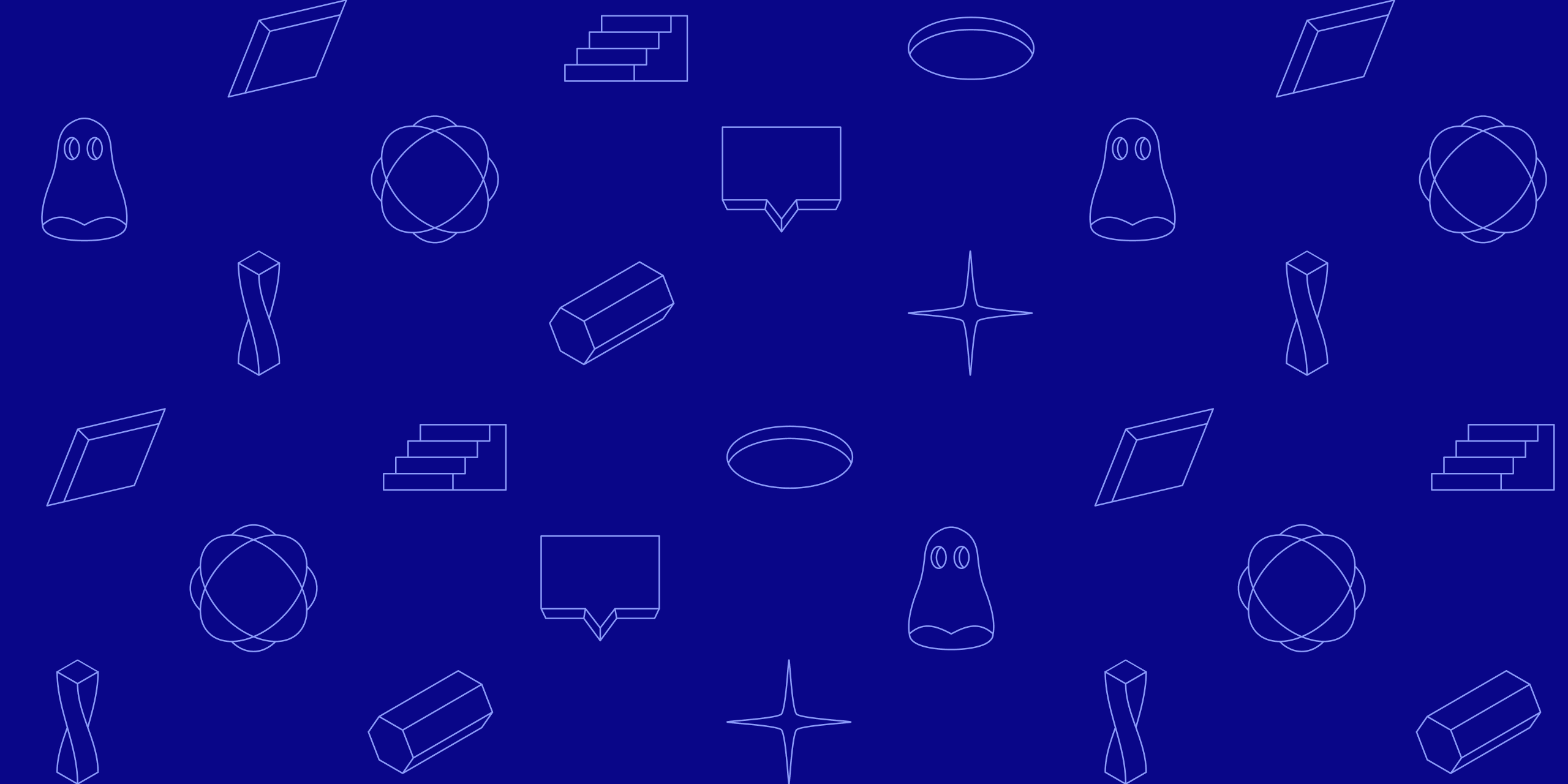
Ürituse ametlik veebileht: https://www.rara.ee/sundmused/kui-tehisintellekt-koolimajja-joudis/
Tehisintellekt ehk AI kütab kirgi nii meil kui ka laias maailmas. Kes ei oleks kuulnud juturobotist Chat GPT, mis suudab kirjutada bakalaureusetasemel kirjandeid, räpiriime ja shakespearilikke sonette? Kas teadsid, et masin võib suuta isegi meistri tasemel malet mängida? Pole kahtlust, et tehistaip võib olla põnev ja kasulik, aga… ka ohtlik! Üheskoos selgitame välja, kuidas mõjutab järjest kiiremini arenev tehnoloogiamaailm meie igapäevaelu ja kuidas kaasaegne koolipere sellega sammu peab. Ootame õpetajaid ning raamatukogu- ja haridustöötajaid meediapädevuse seminarile „Kui tehisintellekt koolimajja jõudis…“, mis toimub kevadise koolivaheaja viimasel päeval Tallinnas. Päeva juhib armastatud saatejuht Anu Välba.
Kuidas tehisintellekti juba hariduses kasutatakse ning millised on selle positiivsed ja negatiivsed mõjud? Mis on sellega seoses õpetajate senised rõõmud ja mured? Kuidas aru saada, kas koolitüki autor on Juku või tehistaip? Mil moel mõjutab tehistaip riiklikku haridussüsteemi laiemalt? Vastuse saavad need ja paljud teised põnevad küsimused. Lõpetuseks võistleb noor kirjanik Reijo Roos publiku silme all ChatGPT-ga.
Kohtade arv on täitunud.
Eesti Rahvusraamatukogu Facebookis ja Youtube’is toimub seminarist otseülekanne, mille salvestist saab hiljem järelvaadata.
Liitu sündmusega ka Facebookis!
Sündmust jäädvustab piltnik.
11.00 I Avasõnad I Anu Välba
11.05 I Haridusministeeriumi esindaja tervitus
11.10 I Priit Talv Riigikantseleist
11.50 I Kristel Kriisa Riigi Infosüsteemi Ametist
12.20 I Sten Tikerpe advokaadibüroost NOVE
12.50–13.10 I Vaheaeg
13.10–13.20 I Eva Ladva Eesti Rahvusraamatukogust
13.20–13.50 I infovastupidavuse nooremteadur Diana Poudel Tartu Ülikoolist
13.50–14.10 I Kirjanik Reijo Roos ja Chat GPT
14.10–15.00 I Paneel: tehisintellekt klassiruumis – õpetaja sõber või vaenlane?
15.00 I Seminari lõpp
Kristiina Kaju
sotsiaalteaduste valdkonna juhtiv spetsialist
Kristiina.Kaju@rara.ee
6307 317

Ürituse ametlik veebileht: https://www.rara.ee/sundmused/digimalu-2023/
30. märtsil toimub juba traditsiooniks saanud seminar “Digimälu/Digital Memory”. Seekord on teemaks digiainese loov kasutamine.
Mäluasutuste digiainese maht kasvab ja huvi selle järele mitmekesistub. Jätkuvalt on see allikaks ajaloolastele, politoloogidele ja ühiskonnateadlastele, aga üha enam ka andmeteadlastele ja loomeinimestele.
Tänavune seminar toob häid näiteid digiainese mitmekesisest kasutusest üle maailma – alates töötlemisest andmetena ja lõpetades kasutamisega kunstiprojektides.
Seminaril vaatame ka tulevikku. Inspiratsiooni saavad nii digikogude hoidjad kui ka potentsiaalsed kasutajad.
Külalisesinejad liituvad meiega veebi kaudu (inglise keeles):
Lisaks toimub kohapeal arutelu (eesti keeles) digiainese loovkasutuse tulevikust – kuhu võiksime liikuda ja kuidas sinna jõuda?
Seminar jätkub töötoaga (eesti keeles), mis aitab koondada mõtted kuuldu kohta ja leida saadud inspiratsioonile praktiline suund.
Päeva lõpus esitlevad rahvusraamatukogu võõrustajad vastvalminud virtuaalse labori platvormi ja selle võimalusi. Pärast seda jätkub õhtu vabamas vormis. Tule muljeta kolleegidega nii päeva jooksul kui ka õhtul koos suupistete ja pokaalikesega!
Broneeri kalendris 30. märts ja registreeru seminarile!
Tead kedagi, kes samuti põnevast päevast osa võiks saada? Siis jaga kutset ka temaga!
Lisainfo:
Marianne Meiorg
E-post: Marianne.Meiorg@rara.ee
Tel: 6307 131
10.00 Tervitus I Moderaatorid: Laura Nemvalts (Eesti Rahvusraamatukogu digihumanitaaria spetsialist) ja Krister Kruusmaa (Eesti Rahvusraamatukogu andmeteadlane)
10.05 Avasõnad I Janne Andresoo (Eesti Rahvusraamatukogu peadirektor)
10.10–11.40 Inspiratsioonipaneel (ettekandjad ühinevad seminariga üle veebi; inglise keeles)
Annika Rockenberger (Oslo ülikooli raamatukogu) – “Jagamine on hoolimine. Digitaalse uurimistöö tugi, oskuste arendamine ja erikogude digiteerimine Oslo Ülikooli Raamatukogus”
Ettekandja räägib raamatukogude põhiväärtusest — jagamisest. Teadmiste ja teabe, aga ka oskuste, meetodite ja uurimistegevuse jagamisest. Oslo Ülikooli Raamatukogu on Norra vanim ülikooliraamatukogu, mis täitis kuni 1999. aastani ka Norra rahvusraamatukogu ülesandeid. Praegu on raamatukogu koduks suurele uurimiskirjanduse kogule ja mitmele ainulaadsele, enamasti mitte-Norra päritolu erikogule. Hiljutise strateegilise ümberkorraldusega keskendub ülikooli raamatukogu digitaliseerimisele selle erinevates aspektides. Juhtmõte on: „Kuidas saaksime jagada oma erinevaid (Oslo ülikooli teaduskondade ja instituutide väiksemaid ja hajutatumaid) kogusid meie teadlaste ja üliõpilastega siin Oslos, Norras ja kaugemal, rahvusvahelise teadus- ja kultuuripärandi kogukonnaga?“ Raamatukogu kasutab kolmepoolset lähenemist.
Jessica Wevers ja Rianne Koning (Hollandi Kuninglik Raamatukogu) – “Tudengite loomingulised eksperimendid”
KB tegi koostööd kunstiakadeemiaga, luues rahvusraamatukogus digiteeritud Alba Amicorumi kogudega kunstinäitusi. Lisaks lõid Delfti Tehnikaülikooli üliõpilased elava raamatukogu, luues raamatukogu digikogude abil interaktiivseid installatsioone.
Sophie Hammer ja Martin Krickl (Austria Rahvusraamatukogu) – “ONB Labs kunsti eksperimendid – kunstnikud, kes töötavad Austria Rahvusraamatukogu digitaalsete kogudega”
ONB Labs on Austria Rahvusraamatukogu platvorm digitaalsete kogude teaduslikuks ja loominguliseks kasutamiseks. Lisaks valitud digikogude üldisele avamisele piltide, tekstide ja metaandmetena, otsib ONB Labs oma loomisest alates 2018. aastast aktiivselt kontakti nii noorte kui ka kogenud kunstnikega. See ettekanne käsitleb ONB Labsi hiljutiste “kunstiliste eksperimentide” protsessi ja tulemusi: kolm programmi, mis kutsusid kunstnikke loovalt ja kriitiliselt töötama raamatukogu digikogudega. Need programmid said teoks ELi kaasrahastatud projekti "Open Digital Libraries" raames.
11.40–12.10 Kohvipaus
12.10 –13.10 Arutelupaneel I “Digiainese loovkasutuse tulevikust – kuhu võiksime liikuda ja mida tuleb selleks ette võtta” I Modereerib: Peeter Tinits (Eesti Rahvusraamatukogu digihumanitaaria peaspetsialist) (eesti keeles)
Panelistid: Kadri Vare (Eesti Keele Instituut), Mikk Meelak (Eesti Kunstiakadeemia, Platvorm), Mirjam Rääbis (Muinsuskaitseamet) ja Indrek Ibrus (Tallinna Ülikool)
13.10–14.00 Lõuna
14–15.30 Inspiratsioonipaneel (ettekandjad ühinevad seminariga üle veebi; inglise keeles)
Fredrik Norén (Umeå ülikool) – “Rootsi Riigipäev 1867–2022: lingitud avaandmete ökosüsteem”
Parlamendil on võim muuta ühiskonna tulevikku. Selle dokumendid on meie tänapäeva jaoks demokraatlik ressurss, mida teadlased saavad omakorda kasutada meie minevikust arusaama ümberkujundamiseks. Ettekandja tutvustab äsja rahastatud teadusuuringute infrastruktuuri projekti, et suurendada võimalusi Rootsi parlamendi mineviku uurimiseks. Projekti eesmärk on (1) luua andmebaas kõigist parlamendiliikmetest alates 1867. aastast ja (2) siduda isikuandmed nende kõnede, tehtud ettepanekute, komisjonide liikmelisuse ja nende vastutada olnud eelnõudega (kui nad olid osa valitsusest).
Vojtěch Malínek (Tšehhi Teaduste Akadeemia) – “Euroopa humanitaarteaduste bibliograafiate praegune olukord”
Ettekanne tutvustab DARIAH-ERIC konsortsiumi bibliograafiliste andmete töörühma (Bibliographical Data Working Group - BDWG) tegevust ja väljundeid. 2019. aastal asutatud BDWG on koondanud bibliograafiliste andmete kureerimisest ja uurimisest huvitatud teadlasi, IT-arendajaid ja andmekuraatoreid. BDWG tegevuse peamine väljund on valge raamat "Humanitaarteaduste praeguse bibliograafilise andmemaastiku analüüs. Kaasus avalik-õiguslike huvigruppide ühise biblioandmete tegevuskava kaitseks" (2022), mis kaardistab hetkeolukorda ja suundumusi Euroopa humanitaarteaduste bibliograafiate maastikul. Teine BDWG kogukonnaga seotud projekt on portaal Literarybibliography.eu, mis püüab Euroopa kirjandusbibliograafiaid esitada ühises liideses. Hetkel on saadaval kolm riiklikku andmestikku (Tšehhi, Poola ja Soome), mida ühtlustatakse süstemaatiliselt. Samal ajal luuakse ühine normandmefail vikiandmete taaskasutamise põhjal. Lõpetuseks saab lühikese ülevaate Tšehhi kirjandusbibliograafia teadusinfrastruktuurist ja selle rahvusvahelisest tegevusest.
Thomas Padilla (Internet Archive)
Üha enam püüavad raamatukogud, arhiivid ja muuseumid toetada oma kogude arvutuslikku kasutamist andmetena. Esitlus jagab õppetunde, mis on saadud riiklikest jõupingutustest toetamaks väikesi, keskmisi ja suuri mäluasutusi (GLAM – galeriid, raamatukogud, arhiivid, muuseumid) nende kogude arendamisel arvutusuuringute ja –pedagoogika jaoks sobivaks.
15.30–17.00 Töötuba I Osalejad koondavad mõtted päeva jooksul kuuldu kohta ja leiavad saadud inspiratsioonile praktilise suuna I Regina Tagger ja Margus Veimann (Eesti Rahvusraamatukogu teenusedisainerid) (eesti keeles)
17.00–19.00 RaRa virtuaalse labori veebikeskkonna esitlus (eesti keeles) ning suupisted ja vein
*Päeva esimest osa salvestatakse
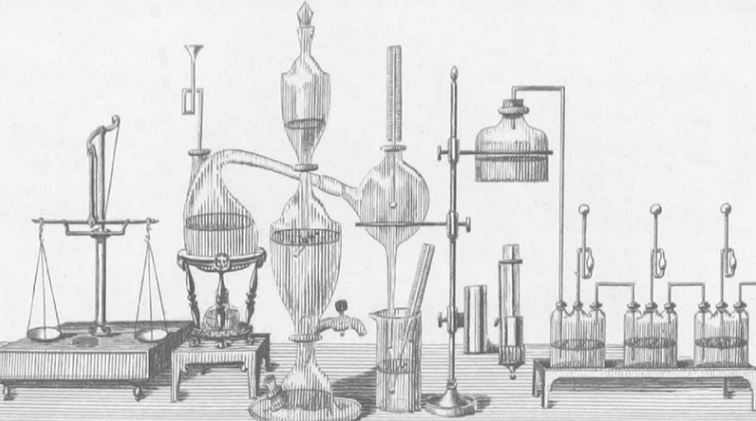
Official event website: https://blogs.bl.uk/digital-scholarship/2023/03/bl-labs-symposium-2023-programme-and-speakers-announced.html
Mar 30, 2023 02:00 PM in London
The annual British Library Labs Symposium is back! Once again we are celebrating creative and inspiring work, that uses the British Library’s digital collections and data for new purposes ranging from research and art to science, community and learning. Following the Webinar, there will be an opportunity to exchange ideas at a networking reception in the Library. You can register for both events here.
The first part of the Symposium will look into the new possibilities emerging in the world of Virtual and Mixed Reality, and the innovative uses of GLAM data in aiding new types of creativity.
In the second half we will delve into the world of data science and AI, including the real life case studies of projects using the British Library data.
We look forward to also telling you about our future plans for the BL Labs. Your ideas are very welcome too!
For the full programme, and further information on our speakers, visit: https://blogs.bl.uk/digital-scholarship/2023/03/bl-labs-symposium-2023-programme-and-speakers-announced
We do hope you will join us and look forward to seeing you soon!
Eesti Rahvusraamatukogu
Tõnismägi 2, 10122 Tallinn
+372 630 7100
info@rara.ee
rara.ee

